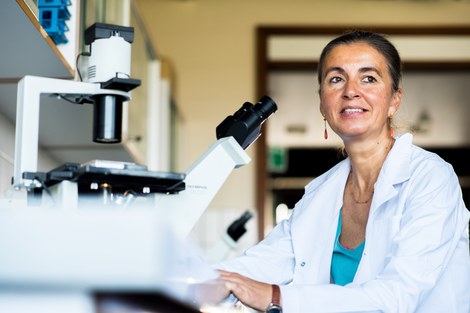Sustainable food security - DELTA-FLU
H2020 SC2 FOOD
DELTA-FLU (Dynamics of avian influenza in a changing world) is a five-year project (June 2017-May 2022) with 7 participants from different European countries, one from Hong-Kong and one from The United States. The project is coordinated by Professor Thomas Mettenleiter of the Friedrich-Loeffler-Institut (FLI), the German Federal Research Institute for Animal Health located on the isle of Riems.
D
Objectives
Through interdisciplinary research focused on key questions of AI, DELTA-FLU will determine:
1) the potential for some highly pathogenic avian influenza viruses (HPAIV, e.g. H5N8 clade 2.3.4.4) to be maintained in wild bird populations and spread over long-distances,
2) key viral, host, and environmental factors for incursion of HPAIV from wild birds into poultry holdings,
3) the roles of viral, host, and environmental factors in the transition of low pathogenic avian influenza virus to HPAIV in poultry,
4) the effect of flock immunity against AI on early detection and viral genetic drift, and
5) viral genetic factors that allow reassortants of avian and mammalian influenza viruses to transmit efficiently among pigs.
Role of Ghent University
As a partner of DELTA-FLU, the Laboratory of Professor Kristien Van Reeth will address the possible role of pigs as a stepping stone for the spread of avian influenza from poultry to human beings and the generation of a potentially pandemic influenza virus. Our laboratory is specialized in swine influenza and in studying the viral genetic factors that allow avian influenza viruses to transmit efficiently among pigs.
Contact
Prof. Dr. Kristien Van Reeth
Department of Virology, Parasitology and Immunology
Phone number: +3292647369
E-mail: Kristien.VanReeth@UGent.be